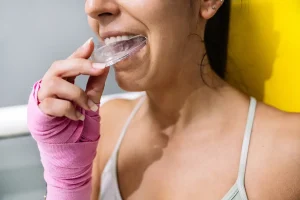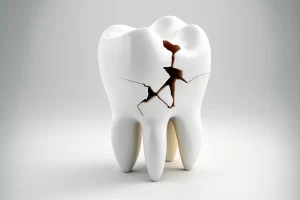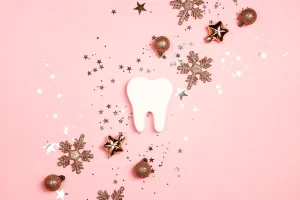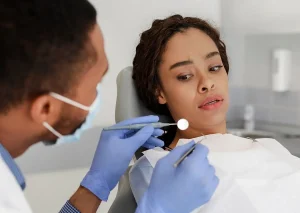Gum recession is a gradual process, which is why you should be proactive in taking preventative measures in your daily oral hygiene routines. Keeping up with your brushing, flossing, and regular dental checkups can significantly reduce your chances of gum recession and increase the likelihood of catching recession in its early stages. Poor oral health will cause increased inflammation, cavities, and tooth degradation, all of which can negatively impact your gum line. Aside from seeing your dentist on a regular basis, you can help yourself with these tips!
Care About Your Oral Health
If you want to keep gum recession to a minimum, you need to start with proper care of your oral health. Poor dental health can cause gaps and your gums to pull away from your teeth. When these spaces fill in with bacteria, it further puts you at risk for gum recession.
Regular Dental Check-Ups
Regular dental checks are vital in removing build-up tartar which takes a toll on your gum recession. Your dentist has special tools, techniques, and advice for reducing your overall issues with tooth decay and gum disease
Brush Smarter, Not Harder
Brushing your teeth is essential to your daily health routine, however, if you are too aggressive you may damage your teeth and gums over time. Let your dentist show you the proper brushing technique if you think you may be brushing improperly.
Stop Smoking
Smokers tend to have more plaque and tartar build-up which negatively affects their gums. Do yourself a favor and kick the habit.
Remove Piercings in or Around Your Mouth
You may think oral piercings are harmless, but frequent irritation can occur from daily impact. Even when you think you are being careful, there could be unnoticed rubbing from the jewelry onto your gums or teeth. Over time these impacts can cause tooth breakdowns, which directly affect your gum health.
Address Grinding or Bruxism
If you are a teeth grinder or clencher, the pressure on your gums can cause this recession. Talk to your dentist about ways to cope or possibly a recommendation for a mouthguard to reduce nightly pressures.





